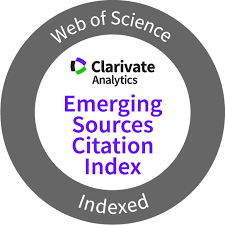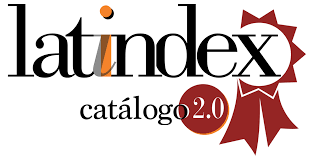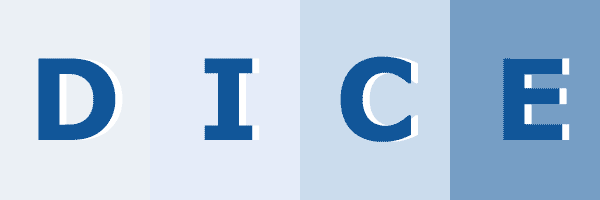The narrative construction of risk in Petrobras’ sustainability reports
DOI:
https://doi.org/10.5783/revrrpp.v14i28.872Keywords:
Communication, risque, Dévéloppement durable, Changement climatique, récit, ESGAbstract
This article examines the problem of risk, with a focus on environmental and climate issues in the context of late modernity. It focuses on how organisations, especially in the oil sector, address environmental controversies through communication strategies and legitimation narratives, emphasising sustainability to reinforce their social commitment. The study focuses on the Brazilian oil company Petrobras, known for its environmental impact and controversies, especially leaks and accidents. The article explores how Petrobras officially communicates about environmental risks, using sustainability reports as a legitimisation strategy in relation to ESG (Environment, Social and Governance) standards. The methodology adopted is reflexive and critical, based on an analysis of Petrobras' sustainability reports over the last ten years (2012-2022).
Petrobras was founded in Brazil in 1953, its origins date back to the search for economic independence in the energy sector and, during its almost sixty years of existence, the organization has gained international recognition in the oil and derivatives sector (Santos, 2021), but has also been at the center of several controversies, especially for the numerous leaks, disasters and environmental accidents (Santos et al., 2012). In this context, ESG (Environment, Social and Governance) highlights the importance of environmental, social and governance factors in financial markets throughout the global sphere. ESG rankings are also known as sustainability rankings or corporate social responsibility ratings. In this regard, the relevance of ESG reports has increased in recent years as they are linked to practices that strengthen sustainable economic development. However, organizations with simpler business models and proportionally lower impacts can measure a small number of relevant factors in terms of socio-environmental risks and opportunities. As the complexity of the business increases, the metric used should become more sophisticated to ensure that the measurement is as close as possible to the real impact.
Those with a higher risk in relation to biodiversity loss, for example, are configured as a higher market risk, have lower liquidity in their shares and have an impact on financial institutions, causing instability in a country’s economy and financial system if its governance is “weak” (Jacobi, 2012). These organizations must seek tools to combat biodiversity loss by mapping risks and for this, they require strategic organizational communication (Kunsch, 2016). In this sense, we are interested here in observing the approach to environmental risk officially communicated by Petrobras, since the oil sector corresponds to one of the segments with the highest rates of environmental pollution / contamination and the way in which these organizations build their reports on their practices in favor of sustainable development becomes, nowadays, important strategies of social legitimation focused on ESG standards. To do this, the methodology adopts a reflexive and critical perspective, based on bibliographic and documentary research, whose analytical corpus focuses on Petrobras' sustainability reports of the last ten years. Our research objective being "to analyze the official construction of the organizational narrative (Santos, 2022) on the approach to environmental risk by the Brazilian company.
From the preliminary analysis of Petrobras' sustainability reports, from 2012 to 2022, we observe an approach that tends to "naturalize" and "relativize" the risk and to emphasize, above all, the measures taken by the organization to "control" it.
Downloads
References
Ashley, P. A. (2005). Ética e responsabilidade social nos negócios. Saraiva.
Basso, M. (12 octobre 2024). ESG: a nova onda verde. E-investidor/Estadão. https://conteudos.einvestidor.estadao.com.br/e-book_esg#:~:text=O%20e%2Dbook%20%E2%80%9CESG%3A,algo%20rent%C3%A1vel%20no%20mercado%20financeiro
Beck, U. (1998). La sociedad del riesgo. Ed. Paidós.
Boff, L. (2012). Sustentabilidade: o que é: o que não é. Vozes.
Bonville, J. (2006). L’analyse de contenu des médias. De Boeck.
Deetz, S. (2009). O surgimento da governança corporativa e o redesenho da comunicação In Kunsch, M. M. K. (ed.), A comunicação na gestão para sustentabilidade das organizações (pp. 85-105). Difusão.
Foucault, M. (2009). Microfísica do Poder. Graal.
Giddens, A.; Lash, S. & Beck, U. (1995). Modernização reflexiva: Política, tradição e estética na ordem social moderna. Unesp.
IPCC (2019). Annex I: Glossary. In IPCC Special Report on the Ocean and Cryosphere in a Changing Climate (677-702). Cambridge University Press. https://doi.org/10.1017/9781009157964.010
Jacobi, P. (2003). Educação ambiental, cidadania e sustentabilidade. Cadernos de Pesquisa, (118), 189-205. http://educa.fcc.org.br/scielo.php?script=sci_arttext&pid=S0100-15742003000100008&lng=pt&tlng=pt
Kaperson, R. E. et al. (1988). The Social Amplification of Risk: A conceptual Framework. Risk Analysis, 8(2), 177-187. https://doi.org/10.1111/risa.13926
Kunsch, M. M. K. (Org). (2016). Comunicação organizacional estratégica: aportes conceituais e aplicados. Summus.
Kunsch, M. M. K. (2010). A Comunicação como fator de humanização das organizações. Difusão.
Kunsch, M. M. K. (2003). Planejamento de relações públicas na comunicação integrada. Summus.
Lyotard, J.-F. (1979). La condition postmoderne. Minuit.
Orlandi, E. P. (2020). Análise de Discurso: princípios e procedimentos. Pontes.
Peretti-Watel, P. (2001). La société du risque. La découverte.
Petrobras (2012). Relatório de sustentabilidade 2012. https://api.mziq.com/mzfilemanager/d/25fdf098-34f5-4608-b7fa-17d60b2de47d/f77993fb-92a9-4cef-a6f9-7ab6981b0d2e?origin=1
Petrobras (2013). Relatório de sustentabilidade 2013. https://api.mziq.com/mzfilemanager/d/25fdf098-34f5-4608-b7fa-17d60b2de47d/4e14cc5d-cc05-45b3-984b-d3ea20d3bab7?origin=1
Petrobras (2014). Relatório de sustentabilidade 2014. https://api.mziq.com/mzfilemanager/v2/d/25fdf098-34f5-4608-b7fa-17d60b2de47d/4e044a4d-7b1f-1e94-89f5-595644acfd42?origin=1
Petrobras (2015). Relatório de Sustentabilidade 2015. https://api.mziq.com/mzfilemanager/v2/d/25fdf098-34f5-4608-b7fa-17d60b2de47d/82523551-8b8e-38d8-4883-1486c1647240?origin=1
Petrobras (2016). Relatório de Sustentabilidade 2016. https://api.mziq.com/mzfilemanager/d/25fdf098-34f5-4608-b7fa-17d60b2de47d/6cb2b6ce-4480-4112-9673-883a76995b08?origin=1
Petrobras (2017). Relatório de Sustentabilidade 2017. https://api.mziq.com/mzfilemanager/v2/d/25fdf098-34f5-4608-b7fa-17d60b2de47d/46a95030-f15e-7447-4193-c6c3a600efcf?origin=1
Petrobras (2018). Relatório de Sustentabilidade 2018. https://api.mziq.com/mzfilemanager/v2/d/25fdf098-34f5-4608-b7fa-17d60b2de47d/cbe31f9a-a9a5-b4c8-05e5-52b4d85a3d9f?origin=1
Petrobras (2019). Relatório de Sustentabilidade 2019. https://api.mziq.com/mzfilemanager/v2/d/25fdf098-34f5-4608-b7fa-17d60b2de47d/d19e7071-48e3-3313-23ec-87fe7a6efe8f?origin=1
Petrobras (2020). Relatório de Sustentabilidade 2020. https://api.mziq.com/mzfilemanager/v2/d/25fdf098-34f5-4608-b7fa-17d60b2de47d/57a92cd8-58d1-f41f-67f4-428abb0c1554?origin=1
Petrobras (2021). Relatório de Sustentabilidade 2021. https://api.mziq.com/mzfilemanager/v2/d/25fdf098-34f5-4608-b7fa-17d60b2de47d/7b6ca46f-9e3f-74c6-f67b-7c8975243532?origin=1
Petrobras (2022). Relatório de Sustentabilidade 2022. https://api.mziq.com/mzfilemanager/v2/d/25fdf098-34f5-4608-b7fa-17d60b2de47d/0fa73576-2e20-87f0-a444-18404076e4d2?origin=1
Rosa, H. (2010). Accélération. Une critique sociale du temps. La Découverte.
Santos, L. C. (2022). Abordagem narrativa da comunicação organizacional: história e narrativa em foco nas organizações. Ria Editorial. https://indd.adobe.com/view/publication/ca1cc368-cbd8-45db-a1cf-a8f8c2323f59/wbtx/publication-web-resources/pdf/Abordagem_narrativa.pdf
Santos, L. C. (2021). Petrobras: Entre fatos, relatos e argumentos legitimantes. Organicom, 18(37), 100 - 112. https://doi.org/10.11606/issn.2238-2593.organicom.2021.188005
Santos, L. C.; D'Almeida, N. & Peliz, A. C. L. (8-10 novembre 2012). Risco ambiental e repercussão midiática [présentation d’article en GT]. 10° Encontro Nacional de Pesquisadores em Jornalismo, Curitiba, Brasil.
Slovic, P. (1987). Perception of risk. Science, 236(4799), 280-285.
Zimermann, P. (2024). Comunicação organizacional para a cultura oceânica e o desenvolvimento sustentável [Thèse de Doctorat], Escola de Comunicações e Artes/Universidade de São Paulo. https://doi.org/10.11606/T.27.2024.tde-03072024-153035
Downloads
Published
How to Cite
Issue
Section
License
Copyright (c) 2024 Larissa Conceição dos Santos, Patricia Zimermann

This work is licensed under a Creative Commons Attribution-NonCommercial-NoDerivatives 4.0 International License.
Authors publishing in this journal agree to the following terms:
a. Authors retain copyright and grant the journal the right to be the first publication of the work as licensed under a Creative Commons Attribution License that allows others to share the work with an acknowledgement of authorship of the work and initial publication in this journal.
b. Authors may separately enter into additional arrangements for non-exclusive distribution of the version of the work published in the journal (e.g., placing it in an institutional repository or publishing it in a book), with an acknowledgement of initial publication in this journal.
c. Authors are allowed and encouraged to disseminate their work electronically (e.g. in institutional repositories or on their own website) before and during the submission process, as it can lead to productive exchanges, as well as earlier and higher citation of published work (see The Effect of Open Access).





